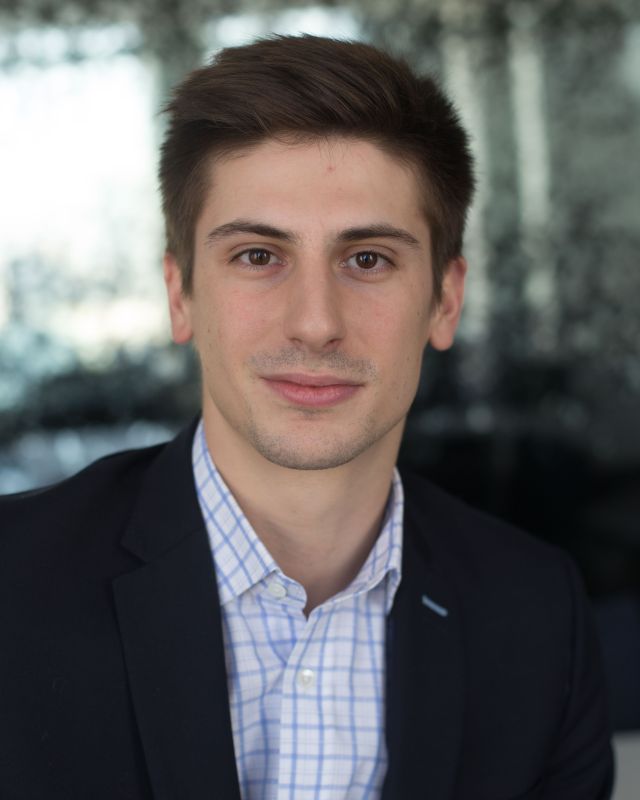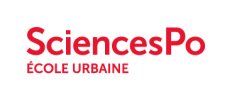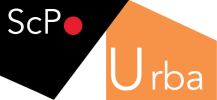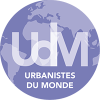Portrait
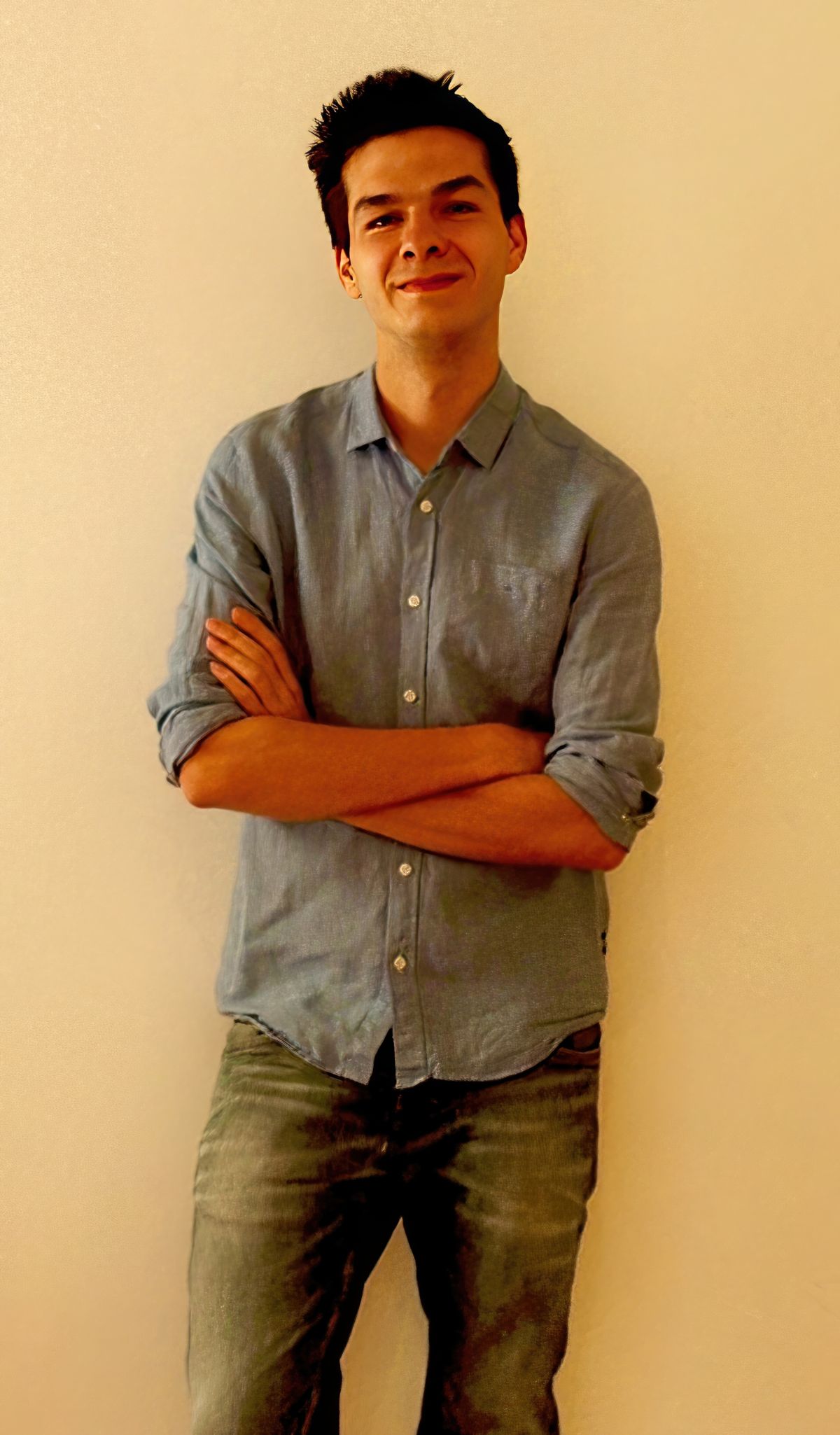
Simon de Bergh - STU 2016 - Urban planning agency of Marseille
Posted on | Alumni Portrait
Portrait by Marion Bigay
Before entering the STU master's program, you attend SciencesPo's university college. How do you choose your master's degree?
My choice of master's degree was relatively simple because I knew from the beginning what I wanted to do. Indeed, when I entered university college, I was already interested in urbanism. It is partly for this reason that I chose to follow a geography degree at the Sorbonne in parallel with the U. college.
In 3A, you go to Colombia to take courses in urban management and development, a way to confirm your choice of orientation?
Indeed, the 3A was a good way to advance in my choices of orientation. Indeed, the program I followed at the University of Bogotá was quite similar to the one proposed in STU, even if the problems of the Colombian cities oriented me towards problems quite different from those of the French fields (community development, informality, mega-projects, "social urbanism"...).
In addition to confirming my interest in urban planning, this year also allowed me to broaden my horizon. At the beginning of the school year, I quite naturally joined STU.
For your final internship, you wanted to go to Peru
Yes, I was supposed to go to Lima for an internship in a public water management company but I had to cancel shortly before the departure because of a visa problem. So I started looking for an internship late in the year, which was not really easy. I finally joined a sub-prefecture in a rural area, in the Hautes-Pyrénées.
On the one hand, I discovered an environment in which I would never have spontaneously sought an internship or a job. On the other hand, as I was in a rather small structure, I was given more responsibilities than I could have hoped for elsewhere.
The mission consisted in promoting, with a local authority, an economic recovery strategy. What levers could be used to revive a medium-sized town in decline (Lourdes), whose historical specificity (the pilgrimage economy) had isolated it from the surrounding mountain areas, as well as from the industrial basin of Tarbes? After a quick diagnosis, we had to set up a committee of experts in connection with the actors of the territory, identify the levers to be mobilized, and draw up short/medium/long term action plans. It was not easy but very stimulating.
We don't necessarily say it enough in STU, but there are really great subjects to work on in rural areas.
After graduation, you continue your interest in declining cities with a four-month assignment in Guinea
I didn't really try to go into this theme in depth. In fact, it was a former STU professor who suggested that I go with him on a study mission to Fria, Guinea. I decided to seize the opportunity and I worked on a city in decline. But the situation was nothing like the internship in the Pyrenees.
In Guinea, as in a number of African countries, entire towns have sometimes been created from scratch to meet the needs of the extractive industry, often mining. In Fria, the factory in question, which kept the town running for 40 years (now with 50,000 inhabitants), closed suddenly two and a half years ago. The managers literally abandoned the town - bauxite mining was no longer profitable - and suddenly stopped offering work. Basically, overnight, the executives abandon the site. They leave and leave everything behind. This obviously had disastrous consequences for the town, since its entire economy, but also its entire operation, depended on the plant. The public services were managed by the factory. The schools, the roads, the lighting, everything functioned thanks to subsidies, subcontracting, or even direct management.
In this kind of case, there is usually a lawsuit against the managers, the company, who abandoned the site, but the justice system needs tangible elements. The actions brought are very political and rarely succeed, because of the imbalance of power. The mission of the research center for which I worked was therefore to objectivize the impact of the abandonment on the overall functioning and on each department of the city. It was really interesting! The final objective was to strengthen the skills of local NGOs on mining issues, so that they themselves could produce arguments to put forward the cause of the friakas to the government.
When you come back, you look for a job and you end up at the urban planning agency of Marseille
It's not as automatic, but that's it. In November-December, I started looking for a job in an urban planning agency.
There are about fifty urban planning agencies in France; they are of two types: most of them are small (they often employ fifteen to twenty people), but there are also ten or twelve "big" agencies (between fifty and eighty-five people). The way they operate and manage their staff is therefore quite different.
The small agencies choose their missions, among those that can be assigned to an urban planning agency, according to the needs of the territory and their capacities. This is the case, for example, of the Rouen urban planning agency that the M1 STU students met this year. A typical STU profile, quite generalist, is not the most likely to interest them. Since they have few staff, they tend to recruit urban planners, economists, and housing specialists who wear many hats and are able to work in several fields.
On the other hand, larger agencies have broader missions, employ more staff, can manage large-scale projects (notably PLUi), and are more likely to be interested in generalist profiles. In Marseilles, for example, there are two of us who report directly to the management and who carry out more transversal studies. Generally speaking, the agencies are closely linked to the local authorities that are members of their Board of Directors (they are associations!), the intensity of the link often depending on the share of the budget provided by each partner (e.g.: municipality, inter-municipality, State and regional agencies, department, consular chambers, university...). They generally intervene in all possible fields (housing, economy, city policy, planning, urban projects, mobility, environment, etc.), and do a little bit of everything, depending on what is expected by the partners and what the agency considers important. It can be internal work on the territory but also on a larger scale, for example on relations with immediate neighbors or international cooperation. The risk, which we must be careful of, is that these agencies do not become a second department of the local authority. We remain partners, certainly close, but with an independence in our productions, framed by a yearly agreement.
So what are the concrete missions of the urban planning agency? What do you do on a daily basis?
If the agency fulfills a wide variety of missions, there are 3 that constitute the bulk of my work.
The first mission is to facilitate transversality when others no longer have the means (or the time) to do so. In general, communication within an urban planning agency is much faster than between the departments of the same community, with which it works. So part of the work consists in keeping ourselves informed of what is happening on the territory and to reuse what we have learned, in a transversal way, in all our works. For example, transportation and environment are two themes that cannot be treated in silo. However, in a local authority, the person in charge of transport and the one in charge of the environment do not necessarily talk to each other. Within the agency, the people in charge of these two areas can more easily exchange. It is much easier at 70 than between the 7000 agents of the Metropolis! As a result, the agency is often a kind of bridge that circulates information and public policy elements from one department to another within the same community! A first part of my work, therefore, consists in keeping myself informed.
But the raison d'être of an agency is above all territorial observation, that is to say producing studies, cartography, data, etc. You have to know how to write and produce in a short time. The goal is to enlighten the community-partner in its decision making. The community has expectations but the agency can also be a source of proposals. It can thus decide to work on a theme which, according to it, is becoming more important or is likely to become more important. It is a prospective work in which we ask ourselves "How will we live in this territory in 15 years? It is both exciting and frustrating. It is exciting because the problems are diverse and we have a great deal of freedom to study and diagnose. Frustrating because you have to be ready to work knowing that our questions are sometimes far from those of the elected officials. I therefore intervene in the production of studies, essentially on behalf of the Aix-Marseille-Provence Metropolis.
The agency also plays a role in facilitating and organizing workshops and consultation mechanisms. Local authorities are increasingly looking for ways to participate, for example with the development councils (a citizens' assembly). At the same time, they do not necessarily have the staff or the skills to lead consultation exercises. Members of the urban planning agency therefore sometimes intervene as reinforcements on these issues.
Finally, I work on "large-scale" issues for the agency, such as regional land use planning, and in particular the SRADDET of the PACA region, a planning document that will be imposed on the SCOT and PLU(i) of the territories (on which other people in the agency work). For this mission, we work almost like a research department, on behalf of the Region.
Some missions are a bit like the work of consultants
It's completely true! In some ways, working in a planning agency and in a design office are similar. But there are still some clear differences.
A consultancy firm offers specialized expertise, acquired over time by having responded to calls for tenders of the same nature, from multiple communities. Basically, it works on a few fields, precise programmatic documents, animation tools... and will sell its experience and know-how to Lille, Toulouse or even Marseille.
In contrast, an urban planning agency is anchored in a territory. It works with an annual program and also has the vocation to carry a form of territorial "memory". We are more involved in long-term management, which requires, for example, remembering (or rather knowing where to look for) what was produced five years ago. This is one of the aspects that particularly interests me, since this is how we can see how issues and questions evolve (or, on the contrary, don't evolve!), and how we can really bring a complementary/alternative perspective to a public decision.
Finally, the relationship with the community is not the same either. The consultancy firm is a service provider for which the community is a client. Even if the urban planning agency receives subsidies from the local authority, it does not position itself in the same way: it defines itself above all as a "partner" of the local authorities that are members of the agency, even if it is true that some of them consider us as service providers.
According to you, what are the important qualities to work in an urban planning agency?
Where I am positioned, it is necessary to have both writing skills and a mastery of tools (cartography, GIS). The goal of the urban planning agency is to produce information, whether it is written, cartographic or statistical. But for a message to be well received, it is essential that it be well presented. It is necessary to be able to produce synthetic and clear information, sometimes in a short time.
In my opinion, it is also very important to like reading and to have a good urban culture. It is essential to work in an urban planning agency, to be able to react quickly to an order and to mobilize good examples that we have heard about elsewhere. In a more general way, it seems important when you come out of school with a profile like ours, no matter what job you plan to do.
Finally I would say that you have to be persistent in the ideas you want to get across. I've already touched on this briefly, but working in a planning agency can sometimes be very frustrating. Some of the elected officials for whom we work can be particularly stubborn, to say the least... and all the technical arguments, however well constructed, come up against the many other constraints they have. While the urban planning agency takes a long-term view, many elected officials think on the scale of the mandate, of the re-election. However, the most important projects to carry out are not necessarily those that are the most visible or valued in the short term by the electorate. Sometimes I propose several solutions, one of which seems clearly better, but in the end, it is the elected official who makes the decision, or the technician at the top of the administration. Sometimes you have to "swallow a lot", feel alone with the impression that the files you are carrying are not progressing, or that you are the only ones carrying them. But if you look at the good side of things, being close to the actors of one and the same territory always allows an exchange over time. And there is also an important challenge in trying to convince.
If you had one piece of advice for current students in closing, what would it be?
It would be to take pleasure in the topics you want to invest in your master's work. You are always better when you produce on a topic you like. At the Urban School, you are lucky enough to have a lot of freedom in the topics of papers, dissertations, reading notes, take advantage of it! You will sometimes have the opportunity to dig them out at the beginning of your professional life, during a moment of lack of inspiration!
It would also be to develop your urban culture by all means; walking is one of them. In the Paris area alone, it is quite easy to wander around and by taking the RER or the train you can quite easily discover new areas.
Finally, it would be to not be afraid to go and look at what's going on in the smaller towns. There are not only metropolises waiting for you!
Sonia Lemaitre - STU 2012 - Nexity
Posted on March 29, 2018
Can you tell us a little about your background? After a literary preparatory class and the STU master's degree, I joined Nexity's strategic marketing departme…
Guillaume Ragon - STU 2014 - Consultant at Wavestone
Posted on January 27, 2018
After having attended the SciencesPo College U, you are finishing the STU master's degree with an internship at the Evry Centre Essonne agglomeration. What doe…
 English
English  Français
Français 
